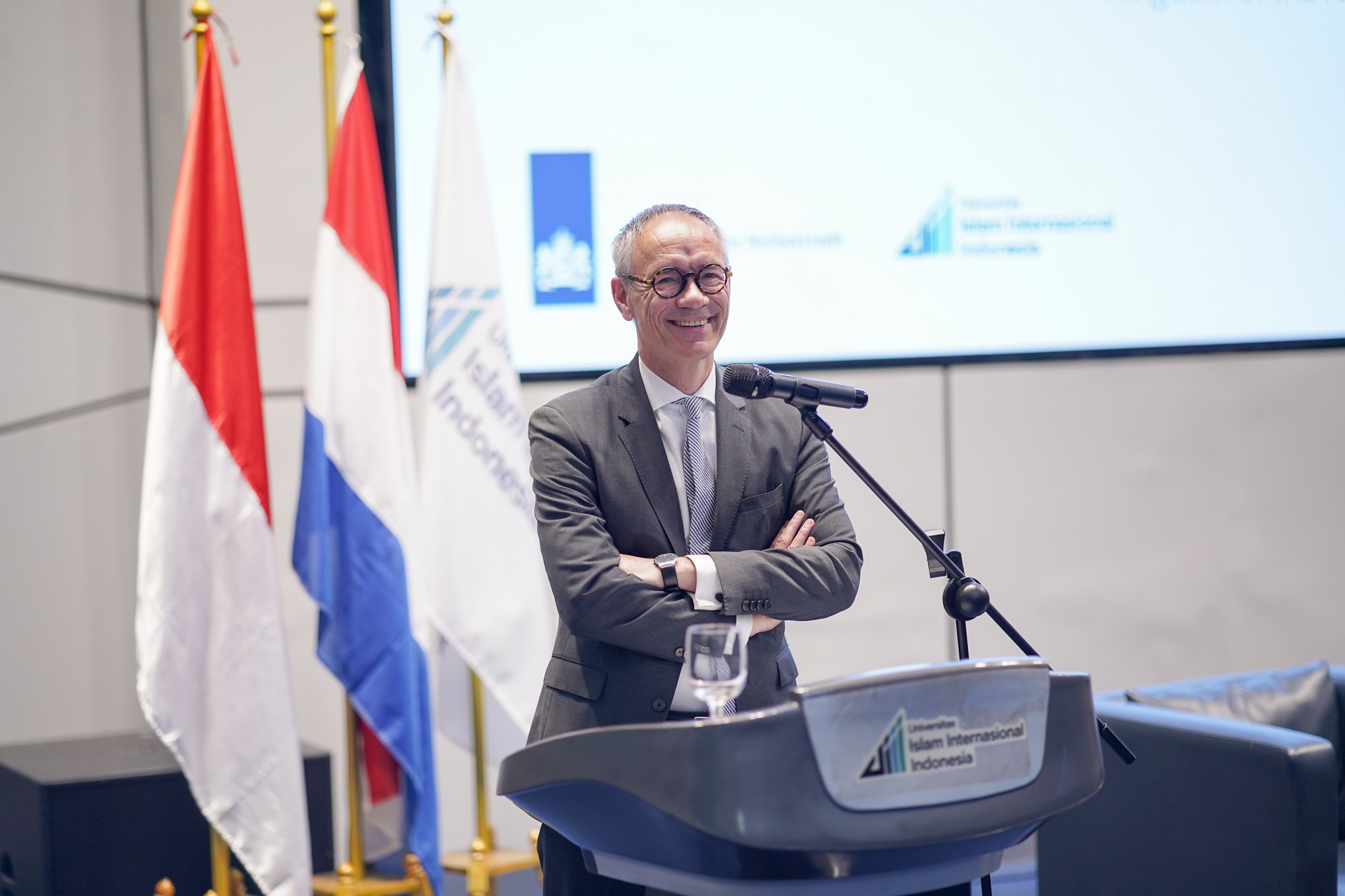More From News
UIII Builds a Bridge to Costa Rica
February 26, 2026
May 20, 2025
By Prof. Dr. Jamhari

In an era defined by geopolitical upheaval, economic uncertainty, and pressing humanitarian crises, the world stands at a crossroads. The need for new paradigms in foreign policy—approaches grounded in wisdom, compassion, and mutual understanding—has never been more urgent.
As we grapple with complex global challenges, from conflicts in Gaza to rising tensions across borders, the role of dialogue in fostering peace and cooperation cannot be overstated.
At Universitas Islam Internasional Indonesia (UIII), we recently had the privilege of hosting His Excellency Aldrik Gierveld, Ambassador at Large of the Kingdom of the Netherlands and Ambassador to the Organisation of Islamic Cooperation, for a public lecture titled “Navigating Turbulence: Toward New Paradigms in Foreign Policy” (Tuesday, May 20th, 2025). His insights, drawn from decades of diplomatic experience, underscored a critical truth: in turbulent times, diplomacy must evolve to prioritize collaboration over confrontation and shared humanity over division.
The challenges we face today are multifaceted. Geopolitical rivalries, climate crises, and economic disparities demand innovative approaches that transcend traditional statecraft.
As the Muslim philosopher Seyyed Hossein Nasr wrote in The Heart of Islam (2002), true dialogue among civilizations requires a shared commitment to wisdom and compassion. This principle lies at the heart of UIII’s mission as a global Islamic university. We strive to cultivate thought leaders who approach global issues with intellectual rigor and moral integrity, fostering discourse that bridges cultures and faiths.
The ongoing humanitarian crisis in Gaza serves as a stark reminder of the stakes involved. As academics, we bear a moral responsibility to amplify the voices of the afflicted, advocate for justice, and uphold international law. The principles of human rights and accountability must guide our responses to such crises, ensuring that civilians are protected and violations are addressed.
Universities like UIII can play a pivotal role in this endeavor, serving as platforms for dialogue and scholarship that challenge injustice and promote a more equitable world.
Amartya Sen, in Development as Freedom (1999), argued that a society’s success is measured by the freedoms its members enjoy. This perspective resonates deeply in our mission to expand intellectual and cultural freedoms through global scholarship.
Events like our recent lecture are not merely academic exercises but opportunities to inspire actionable change. By engaging with diverse perspectives—whether from seasoned diplomats like Ambassador Gierveld or our own students and faculty—we can forge pathways to a more just and interconnected world.
The turbulence of our times demands that we move beyond reactive policies and toward proactive, principled diplomacy. This requires courage to confront uncomfortable truths, humility to learn from others, and a commitment to dialogue that transcends borders. At UIII, we encourage our community to ask hard questions, share bold ideas, and explore how we can collectively shape a better future.
As we navigate these uncertain times, let us draw inspiration from the wisdom of those who have dedicated their lives to diplomacy and the pursuit of peace. By fostering dialogue rooted in compassion and integrity, we can build a world that not only survives turbulence but emerges stronger, more united, and more just.
Prof. Dr. Jamhari is the Rector of Universitas Islam Internasional Indonesia (UIII) in Depok, Indonesia.
Universitas Islam Internasional Indonesia